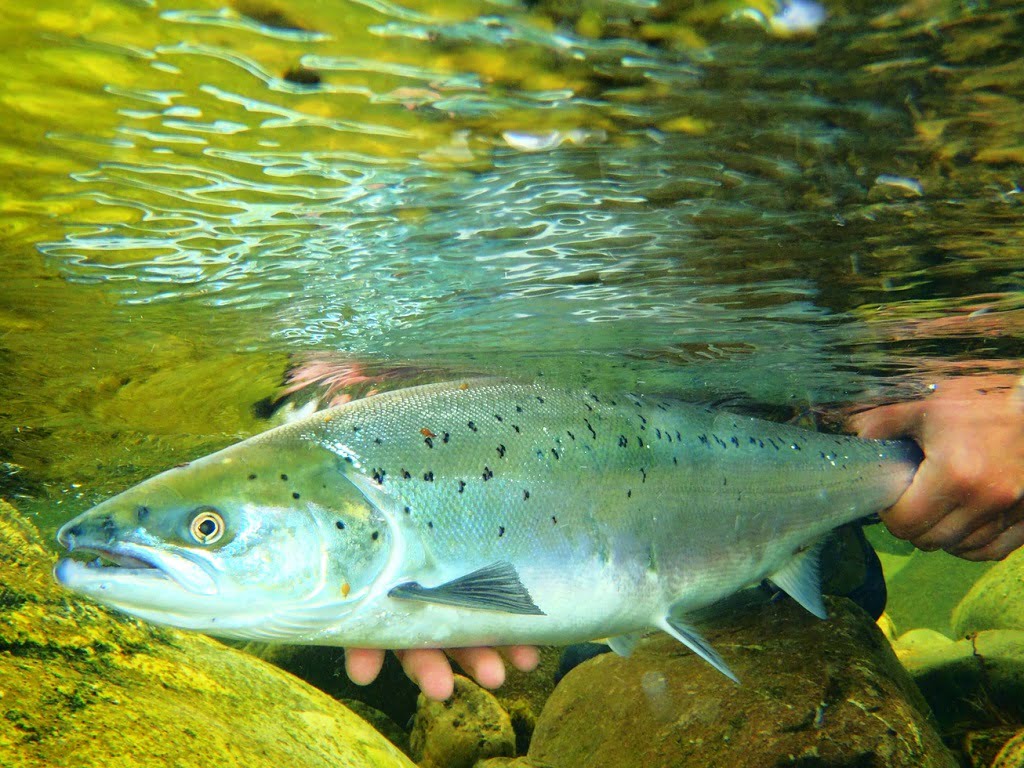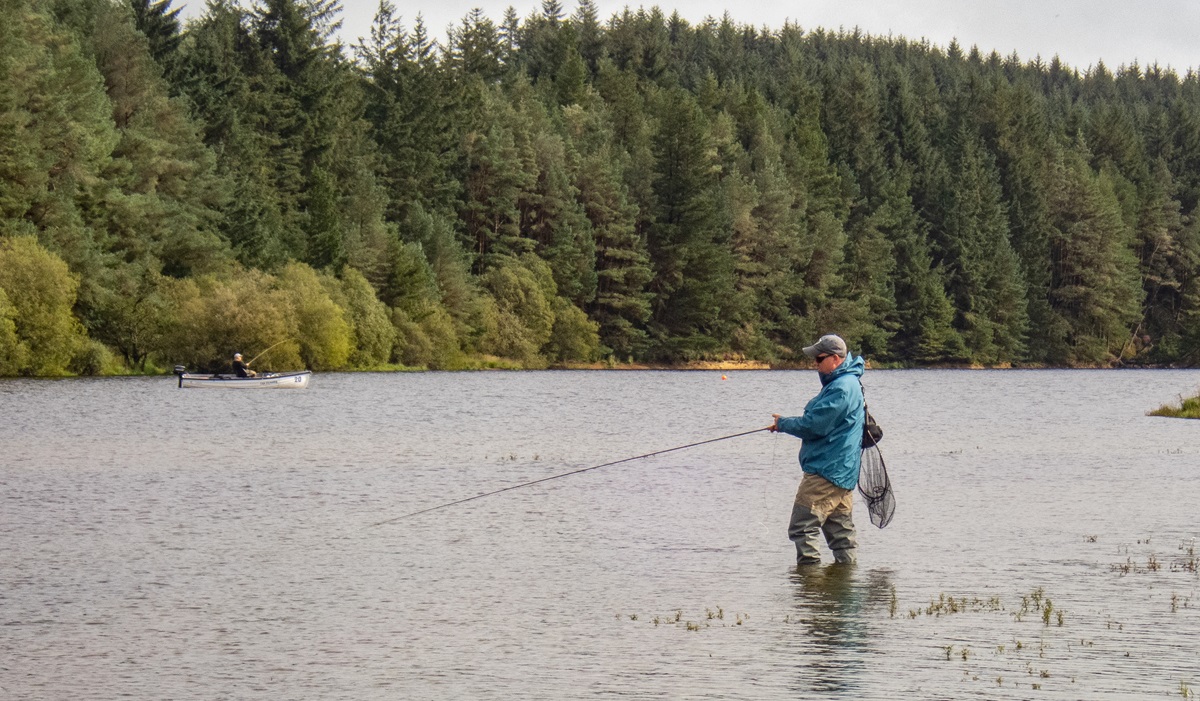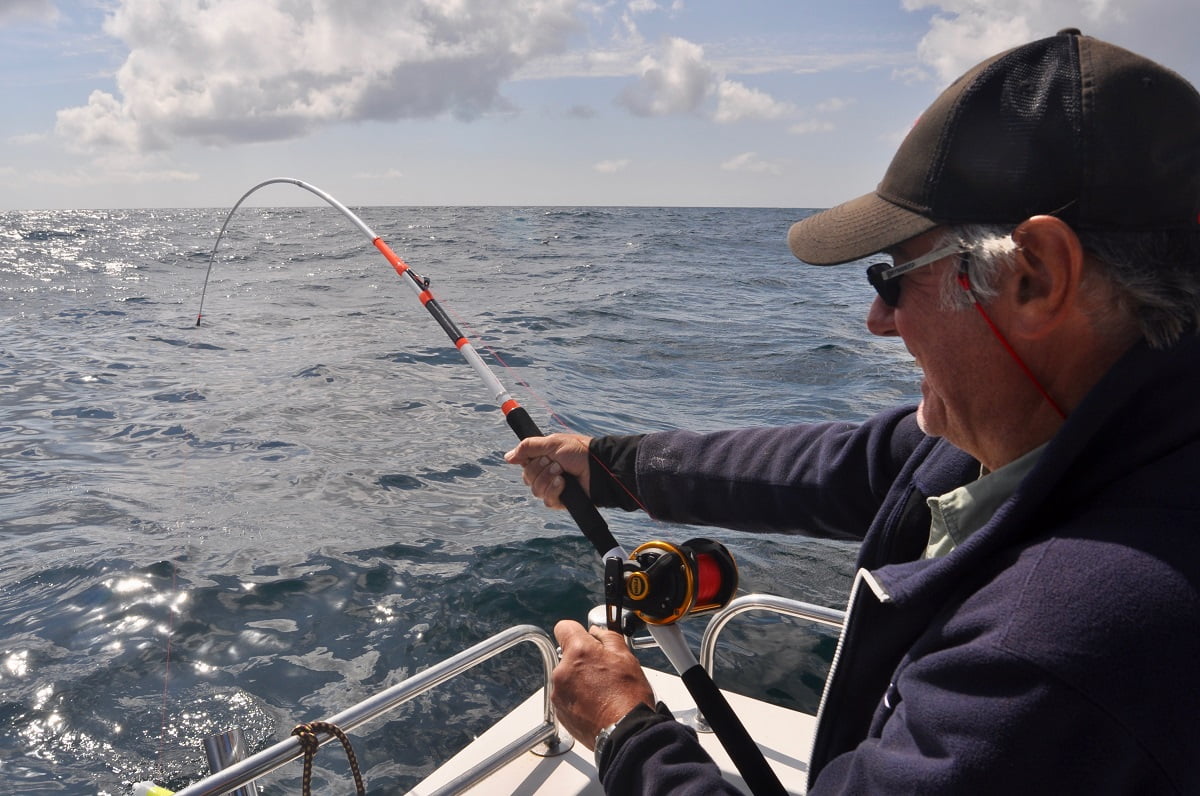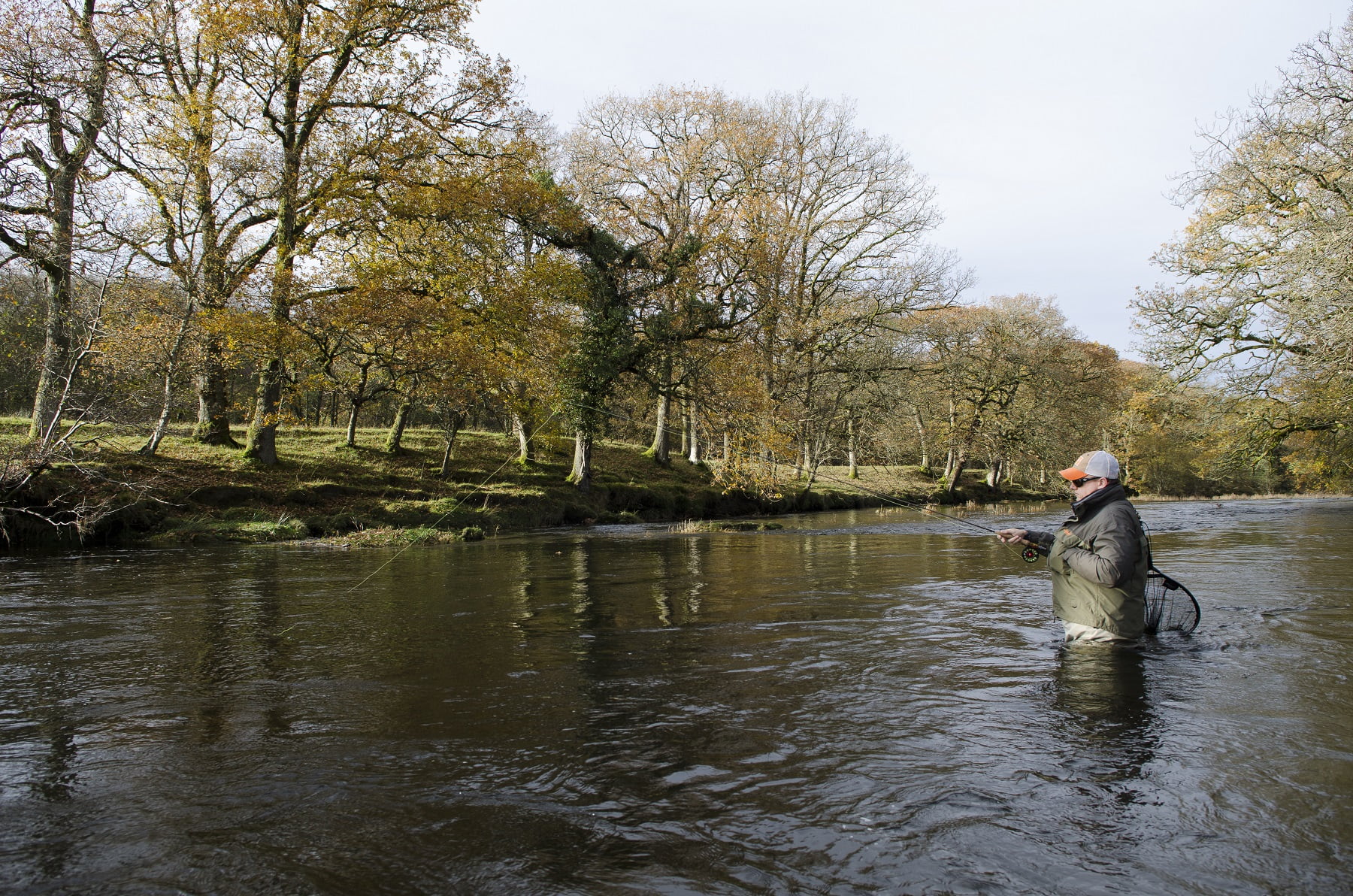Water Temperature – To fish or not fish for salmon and sea trout
Water temps are climbing with the current weather. Whilst not quite yet at the level when NRW advise for salmon fishing to cease, please take extra care with any fish you are lucky enough to catch. Play them hard and keep them in the water.
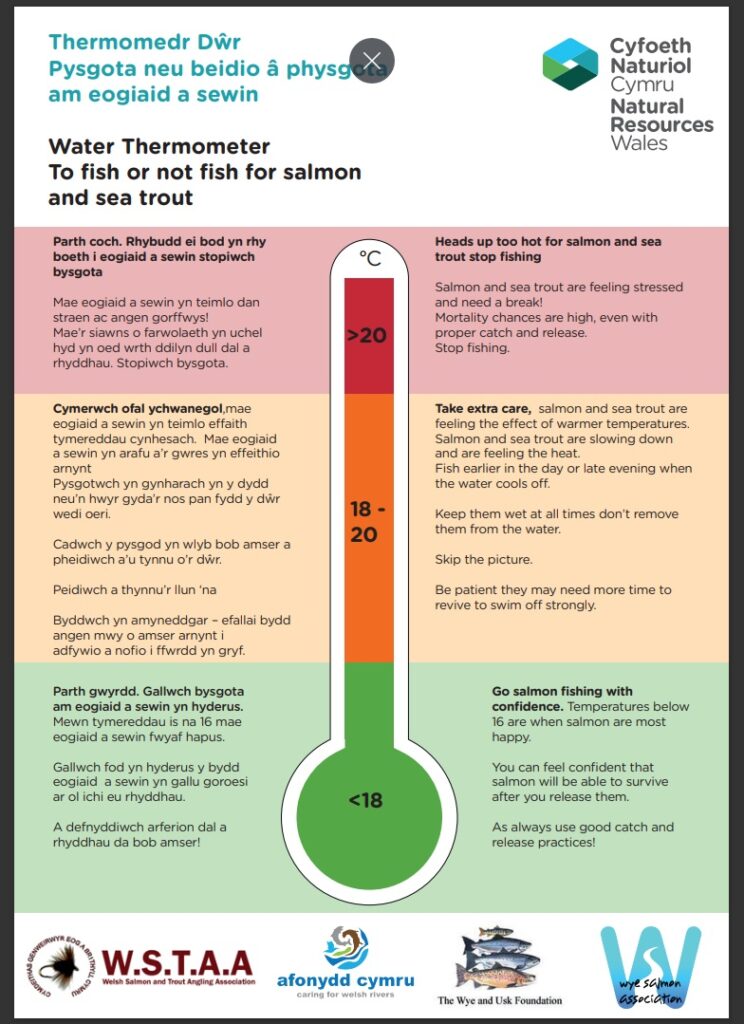
Catch and Release
Salmon and sea trout mortality from catch and release fishing is low, and this is a valuable tool in fisheries management. However, catching a fish has many consequences which can have lethal and sub-lethal effects. The key to minimising these effects is to practice good fish handling measures.
The combination of equipment choice, hooking duration, air exposure, and handling time all result in capture stress. The aim of this guidance is to minimise stress.
Handling effects
The direct consequences of taking a fish from water include:
- Gill collapse – Resulting in less oxygen entering the bloodstream which will ultimately end in suffocation.
- Eye strain – Salmon and trout do not have eyelids and so raising them out of water can damage the eye and is also highly stressful.
- Gravity effects – When out of water, the fish’s body and internal organs are no longer supported. Take care to hold the fish horizontally and support the fish so that it doesn’t damage the spine, bones or internal organs. If the fish kicks out of your hands it may be damaged and will certainly be a stressful experience.
- Skin damage – Damage or scale and mucus loss from nets, dry hands, dropping or placing the fish on the bankside could result in an infection and can stop the fish from reproducing.
- Temperature change – There can be a big difference between water and air/skin temperature and a rapid change temperature will cause stress.
Anglers can have an impact on salmon offspring too, as a fish that exhibits high amounts of stress – from handling and/or temperature – may then produce fewer or smaller offspring or have lower egg survival and disease tolerance.
In short, how a fish is caught and handled has a direct effect on its survival and also the next generation. Minimising stress by following best practice will have a real impact on the number and quality of fish emerging the following spring.
Minimising the time fish are removed from their natural environment must be the goal, and there are numerous studies that suggest air-exposure should ideally be limited to under 10 seconds during the whole catch and release procedure.
Do:
- Use barbless (mandatory requirement under byelaw), single hooks and a line weight heavy enough to bring the fish in quickly.
- Minimise time played and bring the fish in quickly.
- Handle the fish as little as possible and only with wet hands.
- Keep the fish in the water as much as possible – Total air exposure during the whole process should be under 10 seconds.
- Photograph fish in the water or lift just for just a few seconds – holding correctly (below the pectoral fins and on the tail wrist).
- Keep the fish in the water facing upstream to help it recover.
- Allow the fish to recover fully before releasing – the fish should be able to maintain an upright position and respond gently touching at the tail.
Don’t:
- Play the fish unnecessarily.
- Place the fish on the bank.
- Take the fish out of the water longer than completely necessary.
- Treat it rough (bear hug, by the gills, by the tail etc.)
- Fishing at water temperatures of 20°C and above
- The stress effects from handling can be further compounded with increasing temperature. As water temperature increases so too does the fish’s oxygen demand and energy consumption.
Fishing in water temperatures exceeding around 18°C becomes increasingly stressful to the fish and is linked to decreased immune function and increased susceptibility to fungal infections.
Adult Atlantic salmon have increased risk of mortality at around 20°C. When temperature remains above 20°C for 24 hours fish are unable to repair the damage caused by thermal stress and at this point catching has a noticeable negative impact on survival.
Anglers have a direct impact on whether salmon survive thermal stress. If fishing in warm water (18°C or more), risk of mortality from poor handling is much greater.
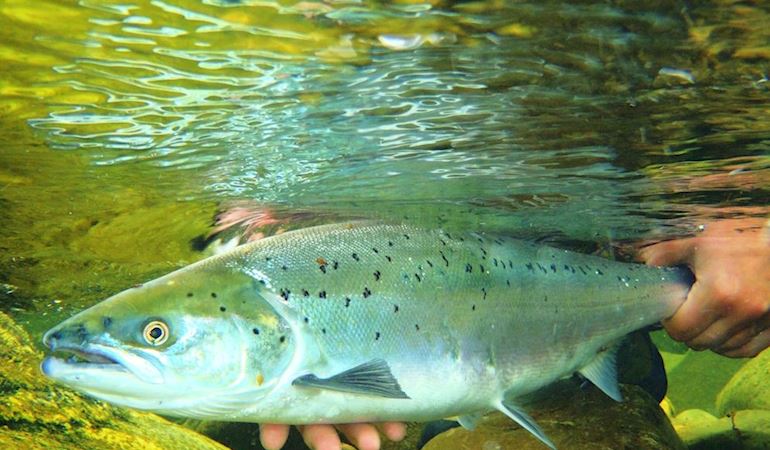
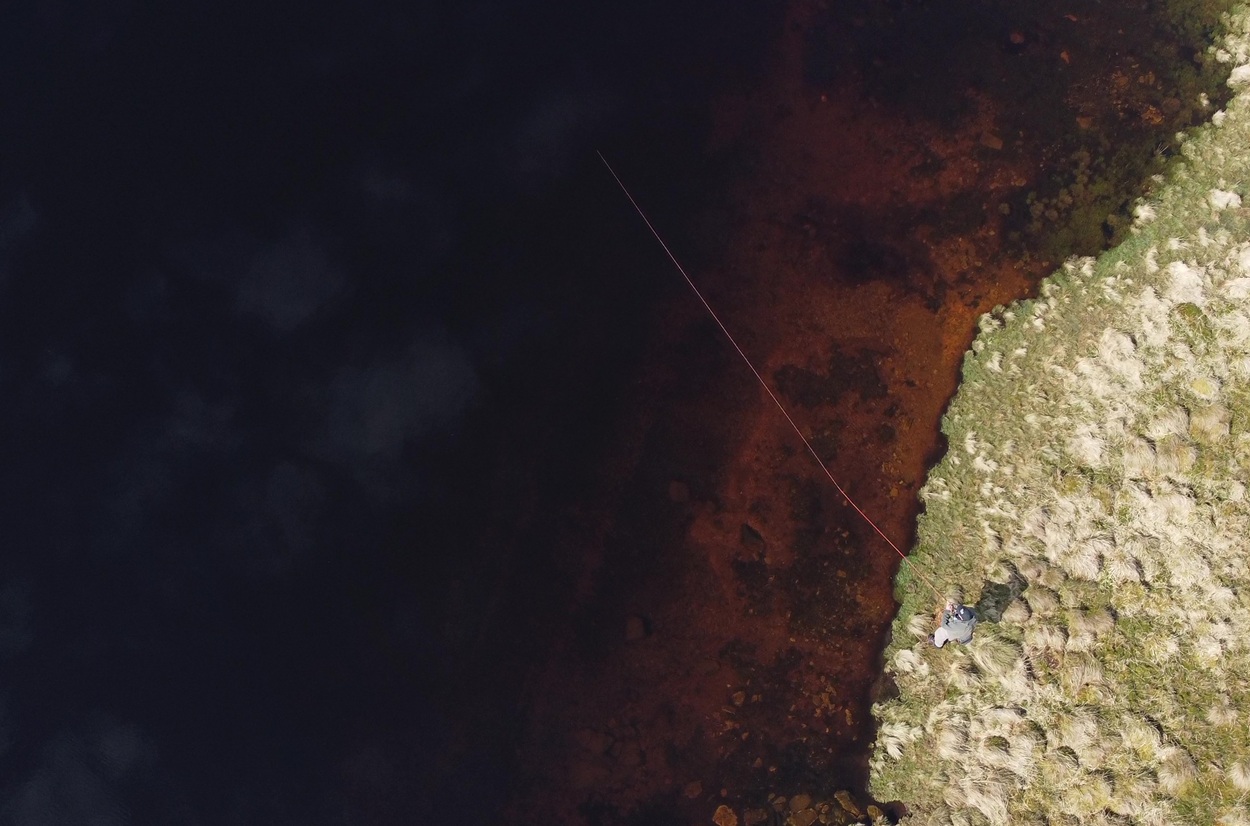
Fishing the Teifi Pools VIDEO
Teifi Pools Mid Wales. Season starts on March 3rd – one of only a few upland lakes that open so…
Read More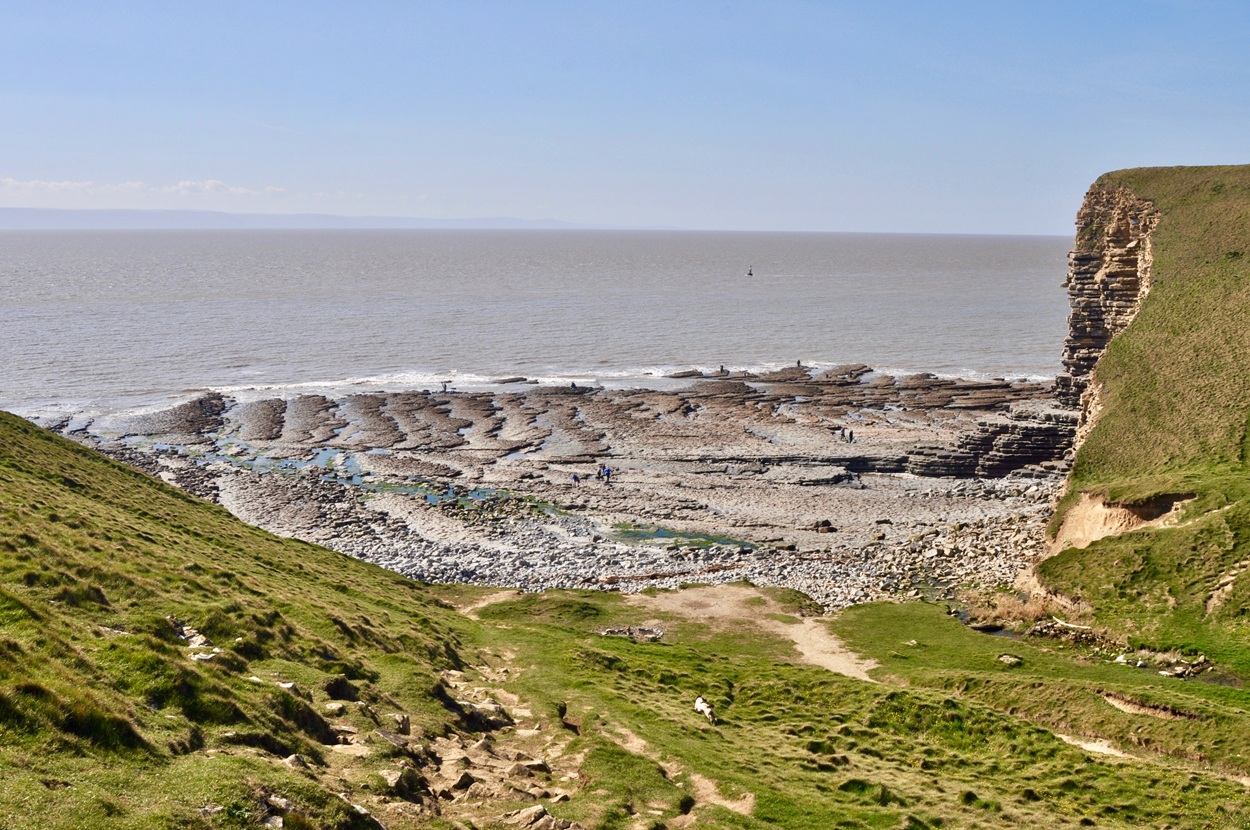
Wales' Sea Fishing 'Off Season'
The latest sea angling blog from the pen of angling writer Dave Lewis – when the fishing is tough, what…
Read More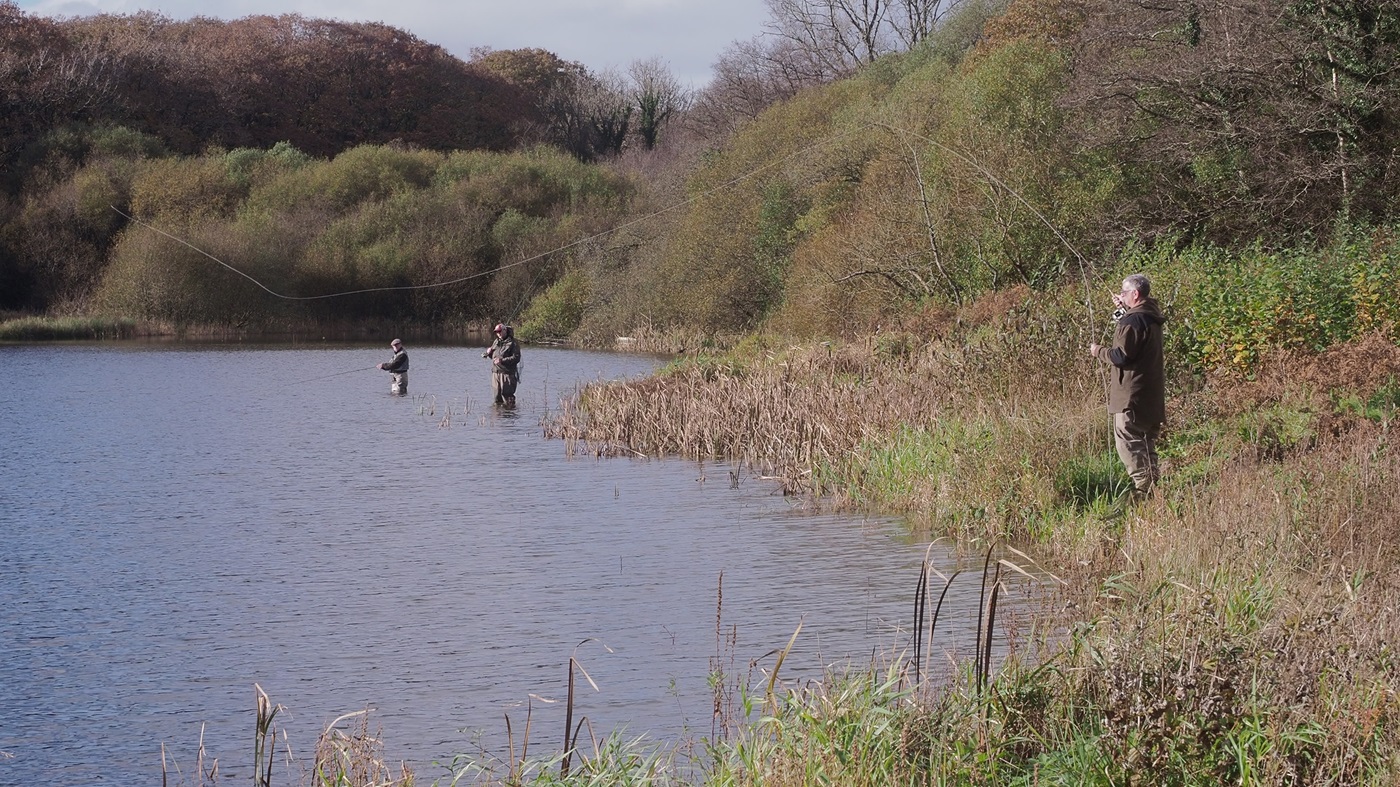
Beat the Winter Blues: Get Out and Fish!
As we drift through January it’s easy to feel the weight of the so-called “winter blues.” Monday, January 19th is…
Read More
